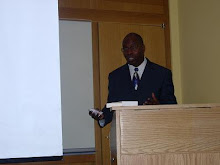Sammy Davis, Jr., also known as Little Sammy and Pappa, helped to lay the foundation for racial diversity, racial political activism, and racial dignity in 20th century America. Born in Harlem, New York to an African-American father and Puerto Rican mother who both where entertainers, Sammy was taught the skills of hardwork, dedication, and love of craft and self. In a colorful career that spanned over fifty years he illustrated that he was one of America's greatest performers. However, he was also a great spokesperson of Black rights and Americanism.
In 1943 he was drafted into the United States Army. Being from Harlem, the cultural Black capital of the world, he was not accustomed to discrimination and blatant racism. A true New Yorker, he used his wit and fists to battle the bigotry that he met in Uncle Sam's Army. His smarts allowed him to neutralize race haters more than his boxing skills. In the military he wrote and acted in plays that made his military associates think about the negatives of Jim Crow America while being entertained with great singing, dancing and acting. When he left the military he continued in the entertainment business appearing on Broadway, in Hollywood, and night clubs throughout the nation. However, there was one role that stuck in his mind and encouraged him to achieve for himself, race and country. That was his star performance in "Rufus Jones for President (1933)." Sammy plays a little boy who fell asleep on his mother's (Ethel Waters) lap and dreams that he is elected president. In a strange way the role illustrates Sammy's view of America--that is, every and anything is possible.
Sammy's move towards that "anything" model and America's concept of cultural pluralism represented itself when he made the revolutionary move in the late 1950s to convert Judaism. In this period, even in cultural liberal Harlem, an African-American accepting the traditional brand of Judaism was unheard of. His conversion caused him to lose many fans, potential contracts and friends. In fact, one of the few people who stood with him and supported his decision was Frank Sinatra.
Davis, also believed in political activism and empowerment. In his career Sammy supported the work of Charles Hamilton Houston and Thurgood Marshall in the National Association for the Advancement of Colored People's legal argument against American apartheid. He also endorsed Congressman Adam Clayton Powell of New York; and the leadership of Coleman Young as the mayor of Detroit. However, one of his more visible stands was supporting the candidacy of John F. Kennedy for the presidency of the United States. He was excited with the young Kennedy and thrilled when he was elected. However, in his quest to show that America was ready to accept the Black man he was deeply hurt by the actions and racism of the newly elected president. Working so hard for Kennedy's election Davis naturally expected an invitation to the Presidential Inaugural Ball. But, the Kennedy's snubbed the Black entertainer by saying an invitation to Davis would be too controversial and it could negate white southern support to the new administration. Kennedy's actions deeply hurt Davis and it stayed with him until his death in 1990.
However, only a few knew how deeply Sammy was offended by President Kennedy. The actor-singer, always spoke highly of the Kennedy's and never spoke openly about the event. He continued singing and supporting Black causes. He supported the work of Martin Luther King by giving thousands of dollars to the movement while also explaining the right of self-determinism to white associates. He spoke proudly of Shirley Chisholm's run for the democrats presidential nomination and openly condemned South Africa's racial policies of apartheid by refusing to perform in the racist state. Other activities included his anti-war stance; but his support of American troops. He was one of very few anti-war entertainers who traveled to Vietnam to sing for American soldiers. In this light he also went to Canada to interview and entertain draft dodgers.
Sammy Davis, Jr., was indeed a man of strength. His quiet support of civil rights, American integrity, and humanitarian causes made Davis one of the greatest men toi have been born in the United States.
Poem: snow is unrisen
12 hours ago


2 comments:
Hello, my friend.
I have sweet memories of Sammy Davis Jr. He was short in stature, but large in character and personality. Thinking about him now still brings a smile to my face. Thanks for the memories!
Hello, I'm finally here with help from friends. Sammy Davis was a great entertainer and my memories of him is when came out with the song "The CandyMan". I was very young girl at the time. I now have a blog site thanks to my friends and it is called POETIC and my site is about the economy but I have not written anything as of yet. (IT'S ME)
Post a Comment